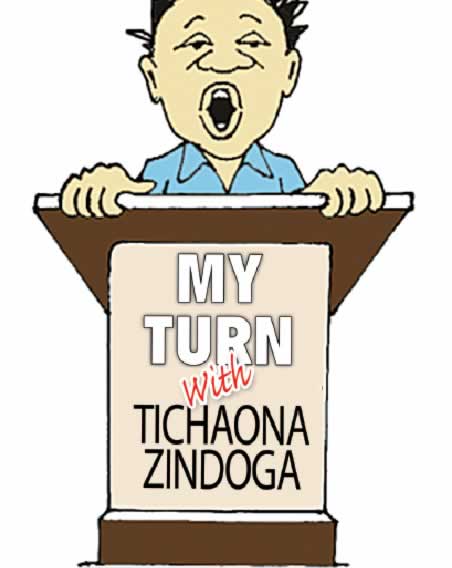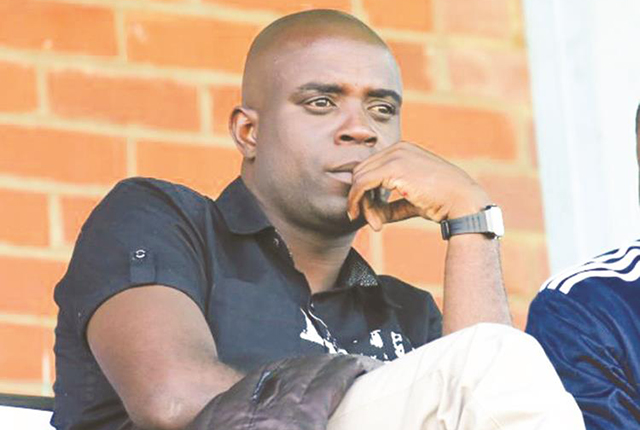No food for poor opposition Diaspora ‘poodles’

 DO not accuse us of hate speech, we are not calling anyone dogs, in the literal sense. In Zimbabwe, there is an idiom that describes an unfortunate situation in which a dog finds itself without supper because the master would have slept over a serving of boiled maize. Naturally, this kind of food is far from nourishing: the grain would have been from the last harvest, dried in the sun in the raw or fermented form; boiled typically in a clay pot over log fire and occasionally with a garnish of groundnuts or roundnuts.
DO not accuse us of hate speech, we are not calling anyone dogs, in the literal sense. In Zimbabwe, there is an idiom that describes an unfortunate situation in which a dog finds itself without supper because the master would have slept over a serving of boiled maize. Naturally, this kind of food is far from nourishing: the grain would have been from the last harvest, dried in the sun in the raw or fermented form; boiled typically in a clay pot over log fire and occasionally with a garnish of groundnuts or roundnuts.
No further embellishment is required, indeed is afforded, and the grain is served with a generous seasoning of salt.
Hence, the meal is hardly one for, less so a favourite, for a dog, an animal inclined more to its carnivorous proclivities even when touted as an omnivore.
A dog won’t eat mutakura, for such is the name given to the dish in question.
Much worse, the master would not have had enough themselves, especially in times of climatic inclemence and intemperance, meaning that the dog would be famished for the night and more.
In the Eastern parts making Manicaland, a watery tube called tsenza (the writer finds it inedible, even for human beings) plays both the substitute in the idiom and a practical remit in times of hunger.
As such, whereas it is often pronounced that Hapachina chembwa vatenzi vararira mutakura” among the Zezurus, the Manyika say, “Hapachina chembwa vatenzi vararire tsenza”.
It’s a sad situation.
It is a cruel situation.
And whereas it is now common knowledge that fortunes for opposition parties in the country have diminished over the past few years, and are bound to be worse, little has been done to analyse how this has affected the morale of party supporters at home and abroad.
It is, however, easier to assess the mood of opposition supporters at home.
Following successive losses by the main opposition led by Morgan Tsvangirai and his party, MDC-T, the opposition is in disarray and its supporters at best apathetic and fatalistic.
The opposition has reached its ceiling and has progressively been, as a function of loser’s fatigue, split and weakened.
Attempts at reunification and coalition are floundering, if not bound to fail.
Even the most ardent supporters are having their doubts, about themselves, their parties and leaders.
While this could be considered normal at home, those in the Diaspora are having it worse.
They are devastated.
A good number of those in the Diaspora professed and rendered support for opposition for two main reasons, which are now coming unstuck: they genuinely hate Zanu-PF and have been active in support of the opposition, believing that at the end of the day, with a win for the opposition, they would become some kind of heroes who would then make a triumphal return home.
Secondly, the supporters would use their support and active participation as an open visa to stay in countries such as the United Kingdom, buoyed by hostile policies of host governments towards Zimbabwe.
Now these two premises are falling off.
The opposition is now mortally weak and weakening, with hopes for triumph spiriting away.
The political visa system is also weakening and the British refusal of one Evan Mawarire of #ThisFlag campaign, a supposed opposition movement, is testimony to this. Add to this all the growing acceptance and traction of the Zanu-pf Diaspora and you get a desperate situation for the opposition, starting with those in the Diaspora who are not only threatened with the bettering of conditions at home, but also the shearing off of the pariah status formerly ascribed to the ruling party.
An illustration will suffice.
Over the past couple of years, Zanu-PF has been growing exponentially both in terms of membership and acceptance diplomatically.
It has also grown in confidence and become more expressive in not only debunking opposition myths about Zimbabwe, but also challenging the opposition structurally.
The reaction to the speech by Zanu-PF UK chairman Nick Mangwana at the just ended Zanu-PF Annual National People’s Conference demonstrates the panic mode that the opposition is now in.
In a fervent, sabre-rattling speech Mangwana laid claim to the Diaspora political space and went further to call many opposition activists, including Mawarire, “nhubu” or mischief makers.
Or let’s just say miscreants.
He in turn has received a tonne of flak — which he should have expected, anyway. Opposition activists in the Diaspora have been calling for his head, and have threatened his private life and legal stay in the UK.
A petition calling for his deportation is being circulated.
He has received threats on social media.
A Zimbabwe People First official, Tich Mutyambizi, who goes by the alias Tichatonga Mwanawevhu said on Facebook: “Why on earth is the Zanu-PF UK Chairman calling opposition groups #NHUBU? In the context he lives where democracy is so well established and guaranteed and he is there primarily because of that tenet!! I am very disappointed if this is what he utters in public about #NHUBU ngadziroverwe mudenga!! What does he say then in private must be worse! What exactly is he implying . . . he is just singing for his supper in blind faith or there is a more sinister motive and plan underway where Zanu-PF external structures name opponents they want eliminated who are based in the Diaspora? #NHUBU referring to registered movements and citizens exercising their constitutional rights he enjoys in the Diaspora, but denied to citizens at home raises many questions about the safety of Diaspora based activists and their families. It’s a subtle threat, but a threat nevertheless. The Zanu-PF UK chairman must be compelled to explain himself lest anything that happens to opposition groups activists be attributed to his threatening and targeting utterances. A public explanation is of the utmost urgency. Externalising Zanu-PF toxic politics of intimidation, influence peddling and unprecedented levels of corruption must not be accepted in the Diaspora.”
One Todd Farai Maforimbo on the same platform divined that Mangwana was advocating: 1) Violence towards anyone that’s opposed to Zanu-PF especially those in the Diaspora; 2) Violent opposition to activists whom he labels as foreigners or Diasporas; 3) The total refusal and denial of Diaspora votes especially for those who are unable to travel to Zimbabwe despite President Mugabe clearly expelling them from the country.
It does not take much, after reviewing Mangwana’s speech and opposition reaction thereto, that the opposition is panicking after losing ground incrementally and having the Zanu-PF Diaspora wipe out the last vestiges of opposition support.
The Diaspora has been a lie, all along.
It lied to the host governments and the international community.
Zanu-PF has taken the war to them.
The opposition is running scared.
They now even accuse Zanu-PF of its inherent militancy, embodied by Mangwana.
The call to deport Mangwana is just a deception: the real problem is the opposition’s own weaknesses which it should not blame anyone for.
Poor Diasporans!
What’s there to eat when the master is having tsenza for supper?








Comments